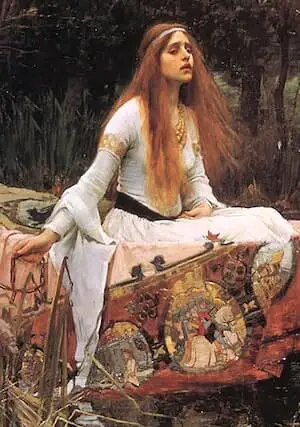The expression ‘A young man’s fancy’ alludes to light thoughts of romantic love.
A young man’s fancy
What's the meaning of the phrase 'A young man's fancy'?
What's the origin of the phrase 'A young man's fancy'?
The phrase ‘a young man’s fancy’ was coined by Alfred Lord Tennyson, in his poem Locksly Hall, 1842:
In the spring a fuller crimson comes upon the robin’s breast
In the spring the wanton lapwing gets himself another crest
In the spring a livelier iris changes on the burnished dove
In the spring a young man’s fancy lightly turns to thoughts of love.
The poem concludes with what is one of the best known lines in English poetry. However, it wasn’t the whimsical accolade to young love as might be imagined. The protagonist muses on unrequitted love in a somewhat bitter mood. Tennyson described the poem as showing “young life, its good side, its deficiencies, and its yearnings”.
By the word ‘fancy’ Tennyson meant ‘imagination; a mental image’. To take a fancy to is to be attracted to and imagine (fancy) oneself together with the object of one’s affection. This expression was well known from the 16th century onward. It is first found in the 1541 Acts of Parliament of Henry VIII:
In case it fortune… the king… should take a fancie to anie woman.
The history of “A young man ‘s fancy” in printed materials
Trend of a young man ‘s fancy in printed material over time
Related phrases and meanings
Browse more Phrases
About the Author

Phrases & Meanings
A-Z
A B C D E F G H I J K L M N O P Q R S T UV W XYZ
Categories
American Animals Australian Bible Body Colour Conflict Death Devil Dogs Emotions Euphemism Family Fashion Food French Horses ‘Jack’ Luck Money Military Music Names Nature Nautical Numbers Politics Religion Shakespeare Stupidity Entertainment Weather Women Work
How did we do?
Have you spotted something that needs updated on this page? We review all feedback we receive to ensure that we provide the most accurate and up to date information on phrases.
